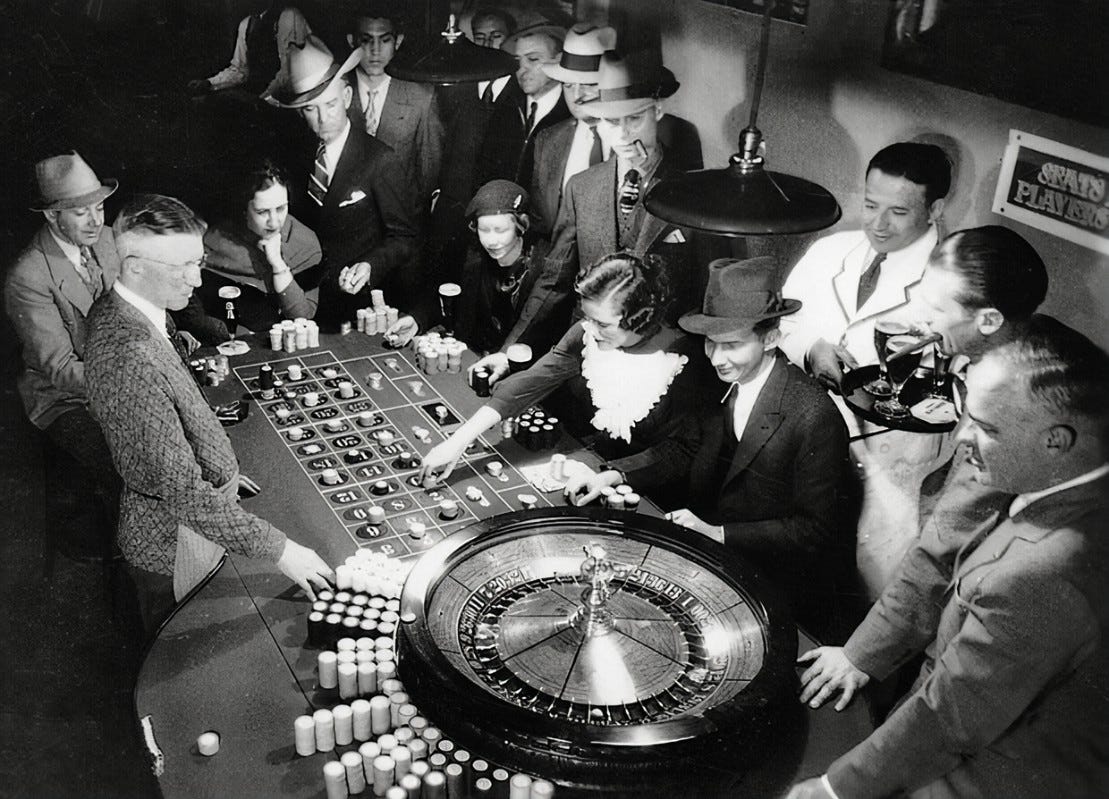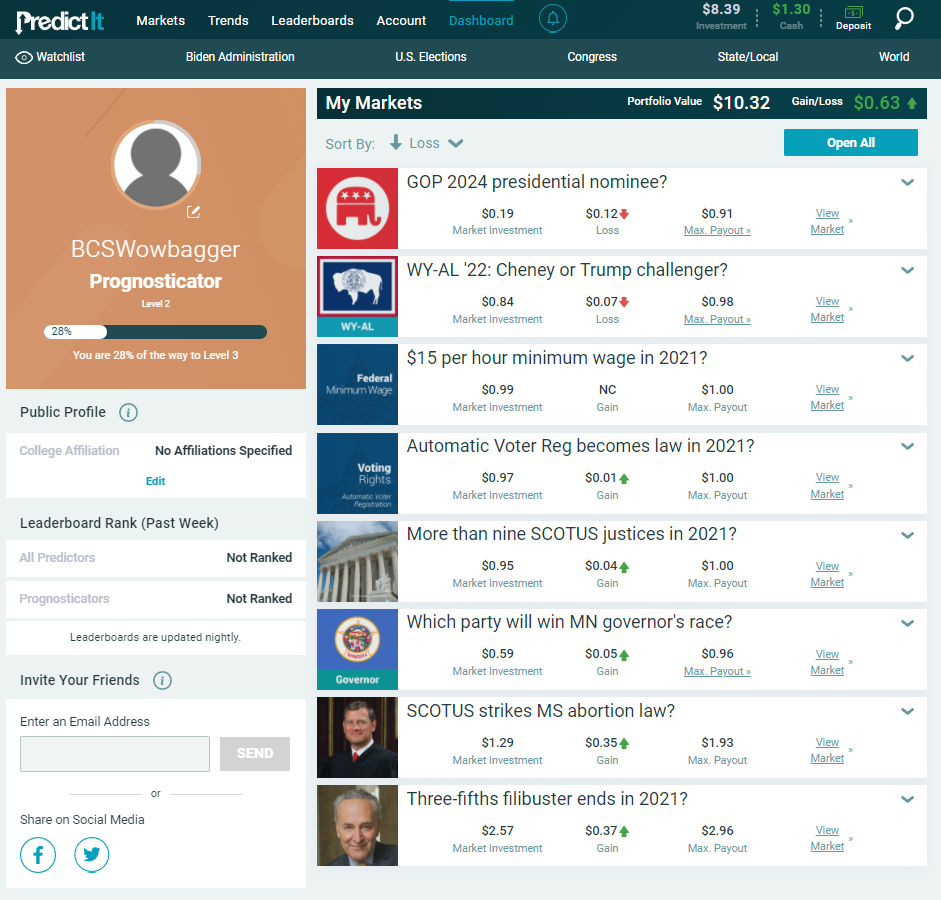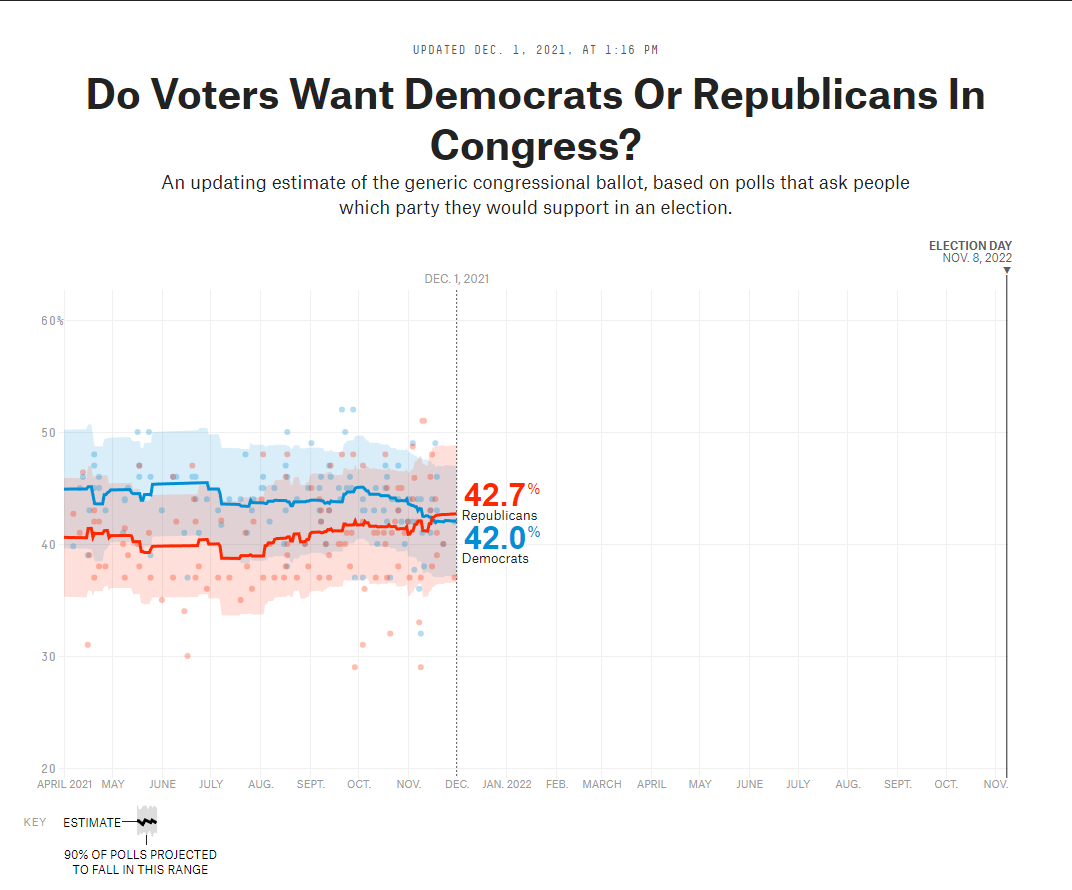
De Civitate received its first paid subscriptions yesterday. The revenues from those alone will already pay for that computer I mentioned—and in much less than 10 years. I am both genuinely surprised and profoundly grateful to each one of you. Thank you for reading this blog and (even more) for finding it valuable.
But thanks are cheap. You’re here for the articles, so it seems like the best way to thank you is with De Civ’s first paid article!
This is the first episode of Playing PredictIt: My quest to turn $10 into $1000 on political betting markets. This series (and future entries of Worthy Reads) will be available only to paid subscribers of De Civitate. The first half of this post is being made available to everyone as a free preview of the series—you might even call it an enticement if you were feeling mercenary.
In September 2020, I took $10 and deposited it on PredictIt.com, a legal American political betting market. I then promised myself—and, more importantly, my wife—that I would never deposit another dollar from my bank account. $10 was all I had, and it was mine to either turn into a fortune or to lose like some chump. I figured, since I know so much about politics and polling, it’d be a nice way to have fun, feel smart, and make a little Steam Winter Sale money.
Of course, I invested cautiously. With no possible bailouts from the Heaney Reserve Bank of West Saint Paul, I had to nurture my money carefully. I avoided placing multiple bets in any one market, and I held significant cash in reserve. My goal was just a modest profit, to start. I wanted to grow my money to $11 or maybe $12.
Two months later, after the 2020 elections, my portfolio was worth $9.06. Oops.
I didn’t lose my shirt in the elections. I knew a Trump win was possible but unlikely, just as I knew in 2016, and I avoided the overconfidence of both the Biden “we’re up 7 in the polls” and the Trump “polls don’t matter” partisans. This gave me a good chance to buy low and sell high. However—in retrospect—I misplayed my hand. I placed bets in several different markets, like “What will the national popular victory margin be?” and “When will the winner be officially declared?” and “Which party will win Florida?” without recognizing that all three of these markets (and several others) are very closely related—so closely related, in fact, that betting in one was effectively a bet in all three, and betting in all three was effectively placing three bets on the same outcome.
In this way, I put way too many eggs in one basket: while acknowledging a wide range of possibilities, I thought the most likely outcome (60% likely) was for Biden to win by >7 points, enough for a convincing electoral victory despite Trump’s electoral college advantage. In fact, Biden won by 4.4 points, leading to an electoral college photo finish and a protracted election dispute. (Two tenths of a point closer and we would have been at serious risk of a shooting civil war. If you are somehow new to this blogletter, I am not even slightly joking.) I had anticipated this possibility, but I didn’t realize until too late how my “eggs in one basket” problem was going to whack me. And, suddenly, a full dollar of my precious war chest was gone.
Ever since then, I’ve been trying to inch my way back up to $10, and I’ve developed some rules for how to do that safely. (I’m sure we’ll explore those rules in future episodes.) Yesterday (thanks to the oral arguments in Dobbs going so well), I made it! For the first time ever, I’m now at $10.32!
So today I’m (hopefully) going to try using some of my newfound cash in a risky market, where I can promptly lose all my recently-won profits. PredictIt recently opened a new generic ballot market using FiveThirtyEight.com’s poll database. New market, using political data I actually understand, on a website I love? Sounds promising!
The “generic ballot” is a poll question where voters are asked (without any candidate names) whether they intend to vote for the Republican candidate or the Democratic candidate for Congress at the next election. Since no candidate names are attached, it does a decent job giving you a national picture of two-party sentiment. Here is the 538 generic ballot tracker:
As you can see, Republicans currently lead the Democrats by 0.7% on the generic ballot.
There’s lots more to be said about the generic ballot, like how it usually underestimates Republican vote totals by ~2% due to likely voter screening, and Republicans also have a structural advantage where they need fewer votes to win competitive seats because of voter maldistribution… but we don’t need to care about any of that today. We’re not trying to win an election; we’re trying to win a bet.
And the bet is simple: on December 7th, how big will the Republican lead be?
Let’s try and figure that out!
Keep reading with a 7-day free trial
Subscribe to De Civitate to keep reading this post and get 7 days of free access to the full post archives.





